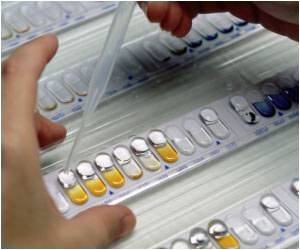Coffee (caffeine) can help treat dyskinesia patients and bring back their life to normal.
Highlights
- Dyskinesia is sudden, involuntary movements that affect the whole body
- In one form of dyskinesia, symptoms occur during childhood due to dysfunction of ADCY5 gene
- Drinking coffee can help treat this form of dyskinesia and bring back the life to normal
This young patient was able to return to a normal life thanks to coffee. In a collaborative study, the same team has just confirmed this result by collating data from 30 patients worldwide who were also treated with coffee.
87% of them saw their symptoms improve significantly. This result could, according to the researchers, be explained by the fixation of coffee in the striatum, a deep region of the brain that is crucial for the control of movement.
Their discovery, published in the journal Movement Disorders, could pave the way for the development of new treatments for movement disorders.
Despite numerous explorations of the potential benefits of drug treatments, until recently no treatment has been confirmed to be effective in this condition.
Their results show that, in addition to a good tolerance of caffeine intake, including in children, 87% of patients reported a clear improvement in their motor symptoms.
The efficacy of coffee can be explained by the fact that caffeine binds to adenosine receptors that modify the function of the dysfonctional protein (ADCY5). The latter is strongly located in the striatum of the brain, which is involved in motor control.
It is estimated that about 400 people have been diagnosed with ADCY5-related dyskinesia, but its true prevalence is unknown. This form of dyskinesia is underdiagnosed as it resemble other conditions such as cerebral palsy or epilepsy.(1)
Other Forms of Dyskinesia
The most common form of dyskinesia is related to intake of medicines like Levodopa for Parkinson. The other reason is due to structural changes in the brain due to injury but often the cause is not known.
Different forms of dyskinesia include:
- Athetosis: Can occur after cerebral palsy and movements are slow and writhing.
- Chorea: Seen in a conditions called Huntington’s disease. In this the movements of the limbs and can resemble dancing.
- Tardive or delayed dyskinesia: This occurs due to antipsychotic medications that are used in treatment of schizophrenia. There are stiff and jerky movements of face and body that cannot be controlled.
- Myoclonus dyskinesia: A form of dyskinesia seen sometimes in newborns and the movements are severe and very disabling.
Coffee will not work in the above forms of dyskinesia and is recommended only where there is mutation in the ADCY5 gene.
Drinking coffee can help treat dyskinesia and bring back your life to normal.
Researchers and clinicians at the Paris Brain Institute are currently exploring the interest of the cyclic adenosine monophosphate (cAMP) pathway as a therapeutic target in this disease and more widely in pathologies associated with hyperkinetic movements.
Source-Eurekalert
Reference
- Ref- (https://medlineplus.gov/genetics/condition/adcy5-related-dyskinesia/#causes)















